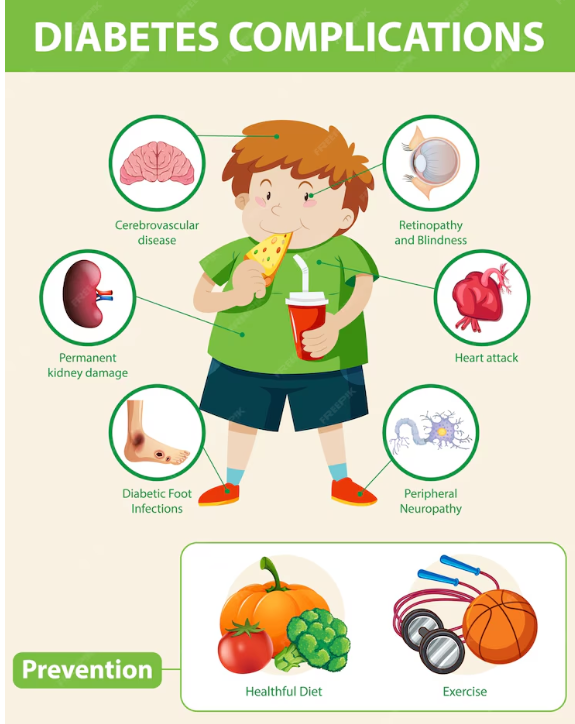
Understanding Diabetic Ketoacidosis in Children: Hormonal Influence, Special Considerations, and Management
Diabetic ketoacidosis (DKA) can be particularly challenging when it occurs in children. Since hormones play a critical role in the development and management of DKA in pediatric patients, it’s essential to understand these hormonal influences. Here, we’ll explore special considerations and effective management strategies for children with DKA, offering vital insights for parents, caregivers, and healthcare providers.
Hormonal Influence in DKA
Insulin Resistance: In children with diabetes, insulin resistance can occur, meaning their bodies do not respond effectively to insulin. Consequently, blood sugar levels may rise, triggering ketone production and leading to DKA.
Growth Hormones: Because children are still growing, growth-related hormones can impact both insulin sensitivity and glucose metabolism. Therefore, fluctuations in growth hormone levels may increase DKA risk in young patients.
Stress Hormones: During times of illness, injury, or emotional stress, children may produce higher levels of cortisol and adrenaline. These stress hormones can interfere with insulin action, potentially worsening hyperglycemia and heightening the chance of DKA.
Special Considerations for Children
Limited Communication: Since young children may find it hard to express their symptoms, recognizing DKA early can be challenging for parents and caregivers. However, parents should stay vigilant for warning signs like extreme thirst, frequent urination, fatigue, or stomach pain.
Insulin Sensitivity: Children’s insulin requirements often vary, especially during growth spurts, puberty, or high activity levels. Therefore, close monitoring and careful insulin adjustments are essential to help prevent DKA.
Pediatric DKA Guidelines: Healthcare providers follow specific guidelines when treating DKA in children. These guidelines include recommendations on fluid replacement, insulin therapy, electrolyte balance, and frequent monitoring to ensure safe, effective care.
Management of DKA in Children
Fluid Replacement: For children with DKA, intravenous fluids are essential to restore hydration and balance electrolytes. Administering fluids promptly under medical supervision is vital to avoid complications, such as cerebral edema.
Insulin Therapy: Administering insulin intravenously helps reduce blood sugar levels and halt ketone production in children with DKA. Continuous insulin infusion provides better control over glucose and ketones while minimizing the risk of hypoglycemia.
Close Monitoring: Regular monitoring of blood glucose, ketones, electrolytes, and vital signs is critical in managing pediatric DKA. With continuous observation, healthcare providers can make timely adjustments to treatment and detect complications early.
Education and Support: Parents and caregivers need education on recognizing DKA symptoms, managing insulin, monitoring blood sugar levels, and responding to emergencies. Moreover, having access to support resources and diabetes management programs can be invaluable for long-term care.
Conclusion:
Because hormonal factors and age-specific symptoms affect DKA in children, understanding these unique aspects is essential for effective management. Through vigilant monitoring, timely interventions, and a supportive environment, children with diabetes can navigate DKA episodes and maintain optimal health.
To seek medical advice, always consult a Doctor. Here are our recommended experts. Click Here
To read more on Diabetic ketoacidosis. Click Here


